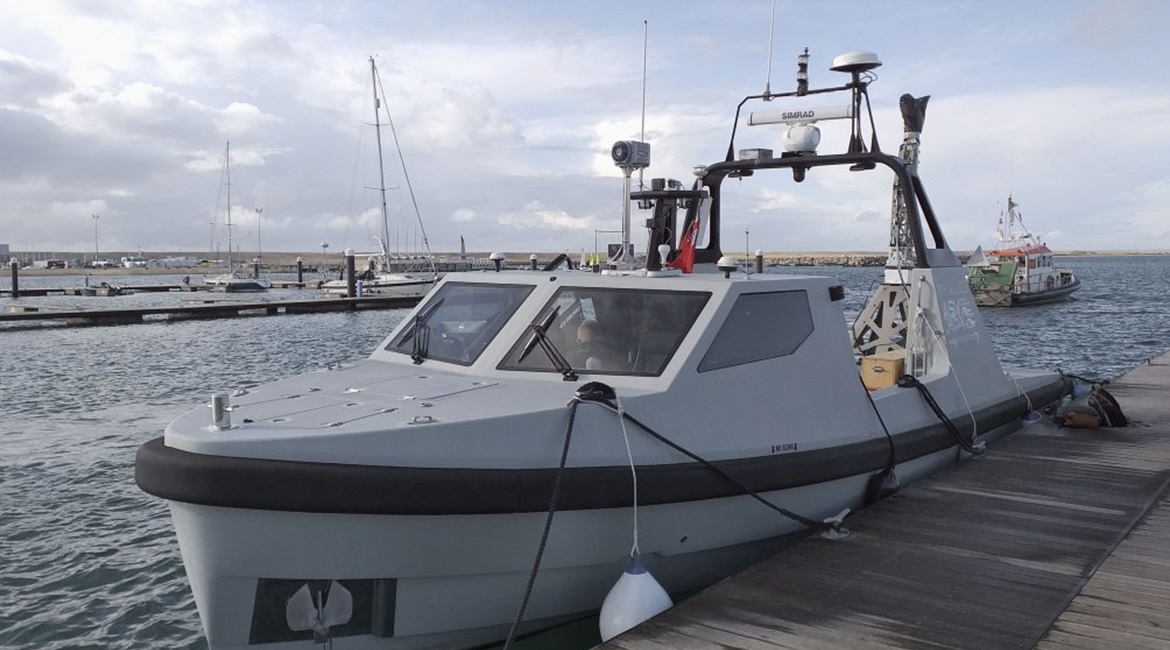
Thales UK has demonstrated the operation of an offboard electronic countermeasures (ECM) payload from an unmanned surface vessel (USV) testbed as part of a NATO electronic warfare trial.
Although self-funded by the company, the trial outputs are intended to inform research being undertaken by the UK’s Defence Science and Research Laboratory (Dstl) to explore the concept of a recoverable offboard decoy system for anti-ship missile defence (ASMD).

USV Halcyon docked prior to the NEMO 19 demonstration. (Thales)
The NATO Naval Electro Magnetic Operations (NEMO) trial, sponsored by NATO’s Above Water Warfare Capability Group, is an annual event for NATO partners to perform electronic warfare trials and data gathering. This year’s NEMO event was hosted by the UK and ran off Portland, Dorset, from 1–5 November.
As a contribution to this year’s NEMO event, Thales demonstrated the use of an offboard radio frequency (RF) decoy payload mounted on board the company-owned 12 m USV Halcyon. The full offboard system was controlled through a tactical picture and trials co-ordination station running Dstl’s MAPLE [Maritime Autonomous Platform Exploitation] software.
The active RF payload was originally developed by Thales for the joint French/UK ACCOLADE Technology Demonstrator Programme (TDP), which completed in February 2016. Although the original ACCOLADE concept of a manoeuvring expendable airborne carrier vehicle was not fully matured, the programme de-risked a number of enabling technologies for future ASMD countermeasures, including a miniaturised RF payload featuring an advanced techniques generator derived from Thales’ Scorpion shipborne jammer.
Looking to read the full article?
Gain unlimited access to Janes news and more...




